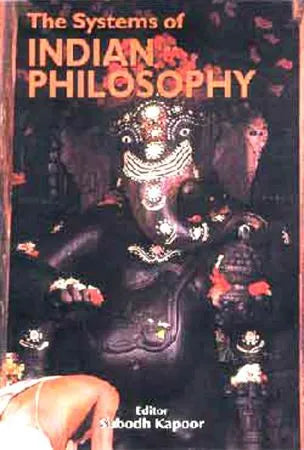Systems of Indian Philosophy
Systems of Indian Philosophy is backordered and will ship as soon as it is back in stock.
Couldn't load pickup availability
Genuine Products Guarantee
Genuine Products Guarantee
We guarantee 100% genuine products, and if proven otherwise, we will compensate you with 10 times the product's cost.
Delivery and Shipping
Delivery and Shipping
Products are generally ready for dispatch within 1 day and typically reach you in 3 to 5 days.
• ISBN: 9788177558876
• Volumes: Set in 2 Volumes
• Author: Subodh Kapoor
• Pages: 700 pp
• Year of Publishing: 2004
• Binding: Hardbound
• Publisher: Cosmo Publications
Description:
Traditionally, six schools of thought propagated Vedic wisdom, each from a different philosophical perspective. Each of these perspectives or darshanas is associated with a famous sage who is the author of a sutra (code) expressing the essence of his darshana.
The sad-darshana (six philosophical views) are:
• Nyaya (logic)
• Vaisesika (atomic theory)
• Sankhya (analysis of matter and spirit)
• Yoga (the discipline of self-realization)
• Karma-mimamsa (science of fruitive work)
• Vedanta (science of God realization)
The sad-darshanas are termed astika philosophies (from asti, or “it is so”), because they all acknowledge the Veda as authoritative. Beginning with nyaya, each of the sad-darshanas in their own turn presents a more developed and comprehensive explanation of the aspects of Vedic knowledge.
• Nyaya sets up the rules of philosophical debate and identifies the basic subjects under discussion: the physical world, the soul, God, and liberation.
• Vaisesika engages the method of nyaya or logic in a deeper analysis of the predicament of material existence by showing that the visible material forms to which we are all so attached ultimately break down into invisible atoms.
• Sankhya develops this analytical process further to help the soul become aloof from matter.
• Yoga helps the soul awaken its innate spiritual vision to see itself beyond the body.
• Karma-mimamsa directs the soul to the goals of Vedic ritualism.
• Vedanta focuses on the supreme spiritual goal taught in the Upanisads.





